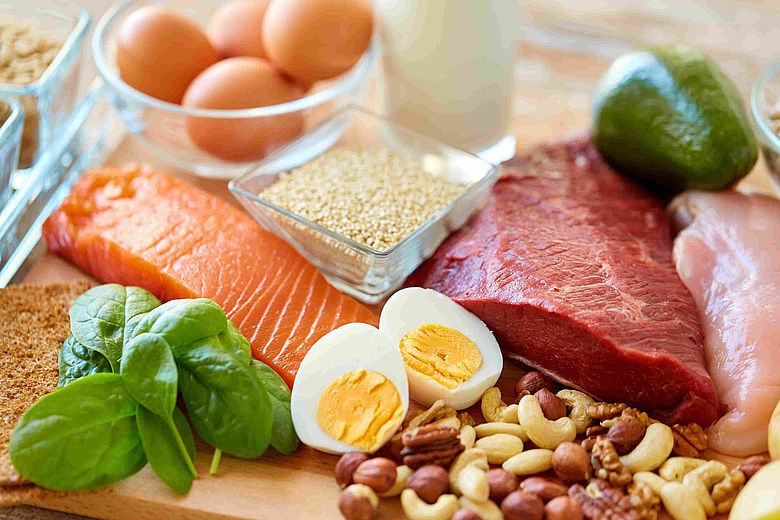Protein is one of the three macronutrients essential to an optimally functioning body.
It is also in some cases pigeon holed as purely essential for muscle building, aka, bodybuilding. And while it is true that it is essential for tissue repair and muscle growth it is far from its only use.
Basically your body NEEDS protein for a range of areas and we are going to break this down and make it clear for all to see why this nutrient is a must in any well rounded, health focused diet.
- If your doing a form of resistance training (yes, we all should be), HIIT or endurance based cardio, protein is critical in the repair process of your muscles. Forget just purely building muscle, if your training intensely and consistently ( this means intensely FOR YOU by the way, don’t compare your training to an Olympian if you’re not trying to compete at the Olympics), then protein is a must so that you don’t damage and deplete the muscle mass you already have. You need it to maintain what you already have! Now if your actively trying to increase the amount of muscle that you have, you WILL need to increase your intake slightly as well as your carbs and fats. But that’s another topic. Simply put: Hard training means protein is needed.
- Fat loss. Now protein itself does not increase fat burning directly, its does however have a long term affect through the maintenance ( and building) of muscle mass. Our muscles are a storage site for carbs. Once they are full, the carbs need to get stored in our fat cells. So to make sure we are storing as much carbs in our muscles as possible we need to maintain what we have or increase it a little. More muscle = more carbs not stored as fat. This means that when we want to lose weight we can eat more than before due to the extra storage space and still lose body fat. Yes, we love when this happens!
- Another lesser known fact about protein is that because it is broken down slowly in the body it helps control appetite. So if your find that you always want an evening snack or are peckish in the mid afternoon, try having a more protein heavy lunch and dinner. You will feel fuller for longer making it easier to say no the sneaky treats later. Which then helps with point 2 above. If you aim for at least 4 serves of quality protein in your day you should notice that your hunger levels start to subside. You could go for a protein smoothie at breakfast, chicken salad with extra chicken at lunch, Greek yoghurt as a snack then fish, chicken, turkey, lamb etc at dinner.
- Now this point is a special one. In this point we are not talking about muscles, fat loss or any of the visible benefits that come along with a healthy protein intake, this one is about your immune system! This is a deep subject so instead we will do a brief summary with the most important points. Adequate protein intake (varies from person to person) stimulates white blood cells, which help your body fight off infections. Adequate protein = more soldiers fighting the good fight inside your body. There are also specific compounds within protein that help with digestion and nutrient absorption and organ support.
So even if you're not trying to build muscle, protein intake will play a major role in managing and improving your overall health. These are just a few short points on the benefits of protein, there is of course more like the positive effects on cell development, growth support in infants and developing children, not to mention the beauty side of things like strong nails and hair plus healthy skin. We really could spend half a day on it! The take away point here though is that the protein macronutrient should never be exclusively tied to and used by professional athletes and bodybuilders. It is something that should be in all of our diets, from our best athletes to our local soccer mums and dads.

